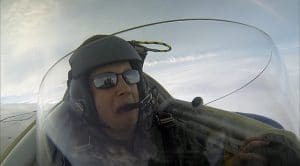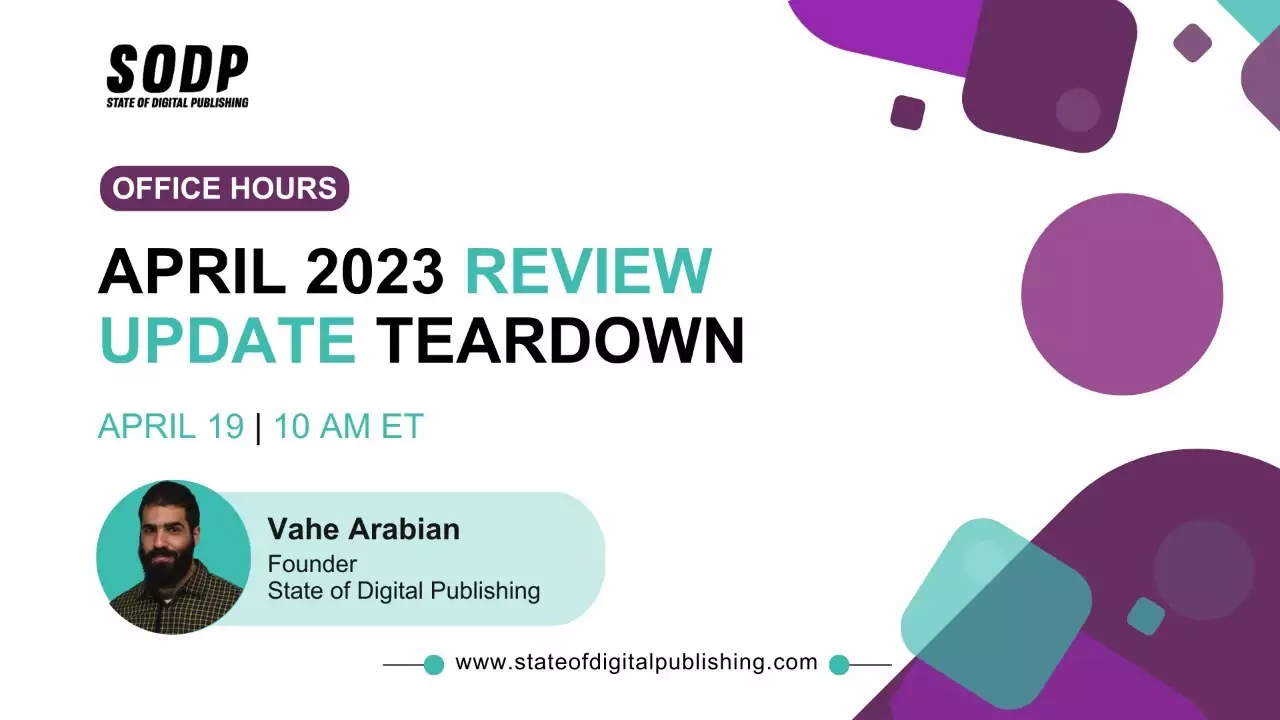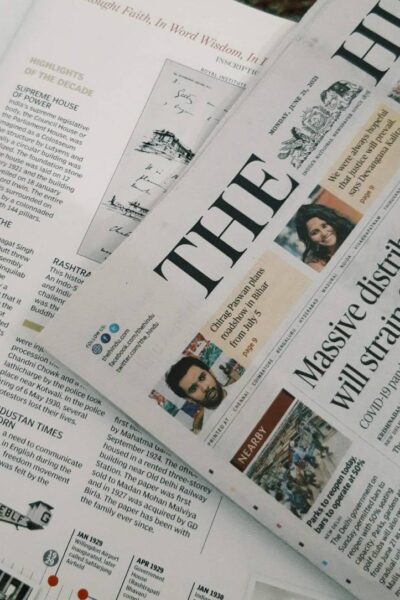Leitender Technologieredakteur bei Ars Technica , wo er Geschichten über Gadgets, Autos, IT und Kultur betreut. Er schreibt auch über bemannte Raumfahrt.
Was hat Sie dazu bewogen, im Digital-/Medienverlag zu arbeiten?
Ich bin seit den Anfängen im Jahr 1998 ein Ars Technica-Leser. Mein Berufswunsch ist die IT – zuerst als Desktop-Support, als ich gerade mein Studium abgeschlossen hatte, dann als Systemadministrator und schließlich als Unternehmensarchitekt für ein Vermögen 25 Luft- und Raumfahrtunternehmen, das Flugzeuge herstellt, deren Namen mit „7“ beginnen. Ich dachte, ich würde das bis zu meiner Pensionierung tun, aber ich habe 2010 ein Drobo NAS gekauft und wollte wissen, wie es funktioniert; Ich habe mich eingehend mit den Patenten rund um die Technologie der Box beschäftigt und schließlich eine ausführliche Rezension darüber geschrieben, ohne wirklich zu wissen, was ich anfangen sollte . Ich wusste, dass Ars gelegentlich freiberufliche Beiträge veröffentlichte, also kontaktierte ich die Herausgeber und fragte, ob sie diesen speziellen Beitrag veröffentlichen wollten. Sie führten einige Aufräum- und Bearbeitungsarbeiten durch und ließen es dann laufen – und ich bekam durch den Deal eine schöne Kleinigkeit.
In den nächsten Jahren war ich als Freelancer für Ars tätig, darunter eine umfangreiche vierteilige Serie über das Innenleben von Solid-State-Disks ( https://arstechnica.com/information-technology/2012/06/inside-the- ssd-revolution-how-solid-state-disks-wirklich-funktionieren/ ). Ich hatte einige Probleme mit dem Zeitmanagement bei dieser Serie und habe fast meinen Abgabetermin verpasst (ich hatte einen Vollzeitjob, während ich recherchierte und schrieb), und ich scherzte gegenüber Ken Fisher (dem Ars EIC), dass ich dafür mehr Zeit hätte Ich würde an so etwas arbeiten, wenn sie mich einfach direkt einstellen würden.
Und zwei Monate später erhielt ich eine E-Mail von Ken, in der er fragte, ob ich es ernst meinte. Wir unterhielten uns, er machte mir ein Angebot und ich begann meinen ersten Medienjob als Redakteur der aufstrebenden Hardware-Rezensionsabteilung von Ars Technica.
Wie sieht ein typischer Tag für Sie aus?
Wir sind alle Fernarbeiter (mehr dazu in der nächsten Frage), daher stehe ich an einem typischen Arbeitstag um etwa 6:30 Uhr aus dem Bett, torkele eine Weile im Haus herum und versuche, koffeinhaltig zu werden, und setze mich dann hinein Mein Heimbüro, um E-Mails und Slack-Nachrichten zu bearbeiten.
Ich leite den Rezensionen-Bereich nicht mehr wie vor fünf Jahren, als ich anfing – ich bin jetzt in der Ars-Redaktion und betreue die Rezensionen, Spiele, IT und Automotive. Deshalb verbringe ich den größten Teil meines Tages damit, Feuer zu löschen und Managerkram zu erledigen. Hin und wieder schreibe ich zwar, aber nicht sehr oft.
Wie sieht Ihr Arbeitsaufbau aus?
Obwohl Ars Eigentum von Conde Nast ist, sind wir ein zu 100 % abgelegenes Büro – wir haben etwas Platz im Hauptbüro von CN im 1 World Trade Center, aber alle Mitarbeiter von Ars Technica arbeiten von zu Hause aus, alle über das ganze Land verstreut . Wir bleiben hauptsächlich über Slack (für informellen Chat und Instant Messaging) und E-Mail (für offizielle Dinge, die eine archivierbare, durchsuchbare Papierspur benötigen) in Kontakt.
Ars selbst läuft auf einer stark angepassten WordPress-Installation, daher ist WordPress unsere primäre Veröffentlichungsschnittstelle. Die Zusammenarbeit übernehmen wir mit der Office-Suite von Google. Keine sehr inspirierende Antwort, ich weiß!).
Was tun oder gehen Sie, um sich inspirieren zu lassen?
Mein Schreibprozess erfordert tendenziell ein gewisses Maß an Panik, um sich inspirieren zu lassen. Deshalb finde ich, dass der beste Weg, sich inspirieren zu lassen, darin besteht, mir wirklich schreckliche Fristen zu setzen, die mich dann in Panik versetzen und zum Schreiben verleiten.
Ich bin auch ein „stiller Schriftsteller“ – die Worte kommen mir nicht in den Sinn, es sei denn, ich bin allein und es gibt keine Ablenkung durch Lärm. Ich schreibe also nicht zu Musik oder bei eingeschaltetem Fernseher oder so. Meine beste Arbeit erledige ich am Wochenende meist morgens, meist zwischen 6 und 10 Uhr, weil dann alles so still ist.
Ja, ich weiß, das ist seltsam, aber so funktioniert mein Gehirn.
Was ist Ihr Lieblingstext oder -zitat?
Mein Lieblingsstück, das ich geschrieben habe, ist dieses über die Rettungsmission, die möglicherweise das Space Shuttle Columbia hätte erreichen können: https://arstechnica.com/science/2016/02/the-audacious-rescue-plan-that- might-have-saved-space-shuttle-columbia/ .
Mein Lieblingsstück überhaupt ist hingegen eine Krawatte. Der erste Anwärter ist Mark Bowden (ja, dieser Mark Bowden) und seine „Tales of the Tyrant“, ein Bericht über Saddam Husseins Leben vor der Invasion: https://www.theatlantic.com/magazine/archive/2002/ 05/Geschichten-vom-Tyrannen/302480/ .
Der andere ist ein alter Artikel von FastCompany mit dem Titel „They Write the Right Stuff“, der den unglaublichen Prozess beschreibt, mit dem Auftragnehmer den nahezu fehlerfreien Code schreiben, der für die primäre Flugsoftware des Space Shuttle erforderlich ist: https://www.fastcompany. com/28121/they-write-right-stuff .
Was ist das leidenschaftliche Problem, mit dem Sie sich im Moment befassen?
LOL, mein eigener kaputter Sinn für Zeitmanagement!
Entschuldigung, das ist keine echte Antwort. Am meisten liegt mir die Notwendigkeit einer Urheberrechts- und Patentreform am Herzen – zwei Rechtsbereiche, die derzeit völlig kaputt sind. Die Urheberrechtslobby hat das ursprüngliche Verfassungsziel des Urheberrechts in etwas Krankes und Unkenntliches verdreht, und nicht praktizierende Patentgesellschaften („Patenttrolle“) verdrehen in ähnlicher Weise den Zweck von Patenten.
Sowohl Urheberrechte als auch Patente sollten als Vehikel dienen, durch die Werke und Erfindungen in den öffentlichen Bereich , indem sie einen begrenzten Zeitraum vorsahen, in dem Urheber und Erfinder die Monetarisierung dieser Werke kontrollieren konnten. Aber die Industrien, die durch den Missbrauch von Urheberrechten (und in jüngerer Zeit auch von Patenten) und durch die Ausweitung des Urheberrechts auf wirklich lächerliche, verfassungswidrige Zeiträume entstanden sind, stellen eine existenzielle Bedrohung für ältere Werke dar. Anstatt dass Filme, Bücher, Lieder und sogar Computerprogramme nach einer begrenzten Zeit ordnungsgemäß gemeinfrei werden, bleiben ältere Werke unberührt und unantastbar für uninteressierte (und manchmal sogar ahnungslose) Urheberrechts-Gatekeeper.
Das kulturelle Defizit ist bedauerlich, da solche Werke der Öffentlichkeit praktisch verloren gehen, anstatt erhalten zu werden. Der Nettoeffekt ist eine enorme Schwächung unseres öffentlichen kreativen Bewusstseins – und daran wird sich so schnell auch nichts ändern.
Gibt es ein Produkt, eine Lösung oder ein Tool, das Ihrer Meinung nach gut zu Ihren digitalen Veröffentlichungsbemühungen passt?
Es gibt eine apokryphe Geschichte über die erste Begegnung Ernest Hemingways mit Ansel Adams. Hemingway soll gesagt haben: „Mr. Adams, ich liebe deine Fotos. Was für eine Kamera benutzt du?“ Adams soll verblüfft geantwortet haben: „Mr. Hemmingway, ich liebe deine Romane. Was für eine Schreibmaschine benutzen Sie?“
Inhalte unserer Partner
Die größte Lektion, die ich in der IT gelernt habe, ist diese: Alle Hardware ist scheiße, alle Software ist scheiße . Manche Dinge sind weniger scheiße, aber letztendlich ist alles ziemlich schrecklich und selbst die beste Anwendung kann nur annähernd den tatsächlichen Bedürfnissen einer Person entsprechen. Die Geschichte der Informatik ist die Geschichte der Menschen, die sich an schlecht konzipierte und schwer zu bedienende Werkzeuge gewöhnten und mit ihnen Großes leisteten, obwohl sie noch so schlecht waren.
Also nein, ich habe kein bevorzugtes Toolset. Der Bogenschütze feuert den Pfeil ab, nicht den Bogen.
Gibt es einen Rat für ambitionierte digitale Verlags- und Medienprofis, die gerade erst anfangen?
Entwickeln Sie eine Leidenschaft für das Lesen und Lesen. Viel lesen. Lesen Sie alles, was Ihnen in die Finger kommt. Man hört viele Leute sagen, dass man schreiben ; Das stimmt insofern, als dass man ohne Übung kein guter Schriftsteller sein kann, aber der wahre Schlüssel zu einem guten Schriftsteller liegt darin, sich so oft und so viel wie möglich den Werken anderer guter Schriftsteller auszusetzen und dann deren Gewohnheiten ebenso zu imitieren So lange Sie können, bis Sie Ihren eigenen Stil entwickelt haben – ein Prozess, der buchstäblich Jahre dauern wird.
Sie können kein guter Schriftsteller sein, wenn Sie nicht nur die Regeln der Grammatik kennen, sondern auch das Gefühl der Grammatik – wann Sie förmlich sein sollten und wann Sie etwas Ungezwungenheit und Spaß zulassen sollten. Wann Sie scherzen sollten und wann Sie auf keinen Fall lustig sein sollten . Wann man sarkastisch und wann man ehrlich sein sollte. Wie man eine gute Metapher bildet und wann man Metaphern beiseite lässt. Nur eine Menge Lektüre wird Ihnen zeigen, was wirklich funktioniert und was nicht.
Und ja, es hilft auch, zwischen 200.000 und 300.000 Wörter pro Jahr zu schreiben. Das würde ich auch empfehlen.












